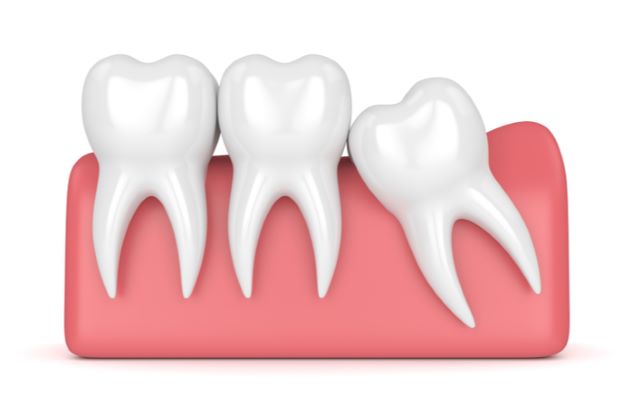Most people expect to get their wisdom teeth removed at some point in their lives. Usually, people can expect their wisdom teeth to emerge in their late teens or early twenties. But does everyone get wisdom teeth?
While having wisdom teeth is common, it’s also possible for someone to have fewer wisdom teeth than average or none at all.
Keep reading to learn more about how your dentist can check for wisdom teeth during a dental exam, why some people don’t get them, and what happens if you need to get them removed.
Everything You Need to Know About Wisdom Teeth
Your wisdom teeth, or your third molars, are the last adult teeth to emerge. Most people have four wisdom teeth at the very back of the jaw, with one in each dental quadrant.
When Do Wisdom Teeth Emerge?
Wisdom teeth can emerge at different ages but usually come in around the ages of 17-23.
If you need your wisdom teeth removed, the surgery is easier to do when you’re younger because the bones in your mouth haven’t fully formed.
How Do I Know If I Have Wisdom Teeth?
With a quick inspection, you should be able to tell if your wisdom teeth have emerged if you can feel three molars in each dental quadrant. However, if your wisdom teeth haven’t appeared yet, the only way you’ll be able to tell is if your dentist takes a dental x-ray.
Your dentist will most likely take dental x-rays during your regularly scheduled exam, but if you have specific concerns about your wisdom teeth, make sure to ask them.
How Do I Know If My Wisdom Teeth are Coming In?
Most of the time, you’ll be able to feel the effects of your wisdom teeth emerging before they break through the skin. If your wisdom teeth are coming in, you may feel the following sensations in the back of your jaw:
- Pressure
- Dull throbbing
- Slight pain
When a wisdom tooth breaks through the skin, you may experience a temporary increase in pain or minimal bleeding.
Does Everyone Have Wisdom Teeth?
Although most people have all four of their wisdom teeth, it is possible for some or all third molars never to develop. In some cases, the wisdom teeth could have developed but may never emerge.
While it may not be typical not to have all four of your wisdom teeth, it doesn’t mean that anything is wrong. According to research, it’s estimated that anywhere from 5 to 37 percent of people are missing at least one of their third molars.
Why Doesn’t Everyone Get Wisdom Teeth?
The exact reason why some people don’t have wisdom teeth is still largely unknown, although the following factors may influence whether or not wisdom teeth develop:
- Genetics
- Environment
- Diet
- Gender

Wisdom Tooth Removal
The average adult jaw only has enough room for 28 adult teeth. If all four of your wisdom teeth come in, you would have 32 teeth in your jaw, which could lead to complications including:
- Overcrowding
- Tooth pain
- Swelling & redness
- Oral infections
- Damage to other teeth
- Gum disease
- Shifting teeth
- Cavities
- Oral cysts
Although wisdom tooth removal is standard, it doesn’t necessarily mean you’ll need to get yours removed. If your wisdom teeth aren’t causing any of the above problems or complications, your dentist may recommend waiting to get them removed.
Even if you’re not experiencing the above symptoms, your dentist may still suggest removal as it’s easier to remove these teeth before the jaw fully sets. Your dentist may also recommend the removal of wisdom teeth as part of treatment for braces or other dental care.
When Must Wisdom Teeth be Removed?
In some cases, it is absolutely necessary to get wisdom teeth removed. Your dentist will have to remove your wisdom teeth if:
- They’re trapped in your jawbone or gums
- They are coming in at the wrong angle
- There isn’t enough room in your mouth
- You have cavities or gum disease
What to Expect During Wisdom Tooth Removal
A typical wisdom tooth removal appointment is about 45 minutes long. During the procedure, your dentist will:
- Give you anesthesia, so you don’t feel pain during the removal
- Make an opening in your gums or bone to remove the tooth
- Stitch the wounds shut to promote quick healing
Preventing Wisdom Tooth Complications
The best way to prevent wisdom tooth complications, or any dental issues, is by visiting your dentist regularly.
You should receive a dental exam every 6 months. This can help your dentist diagnose problems early on and stop more serious issues from developing.
If you have any questions about your oral health, contact us at Shawnessy Dental today! Our skilled team is always happy to answer any questions or concerns you may have.



